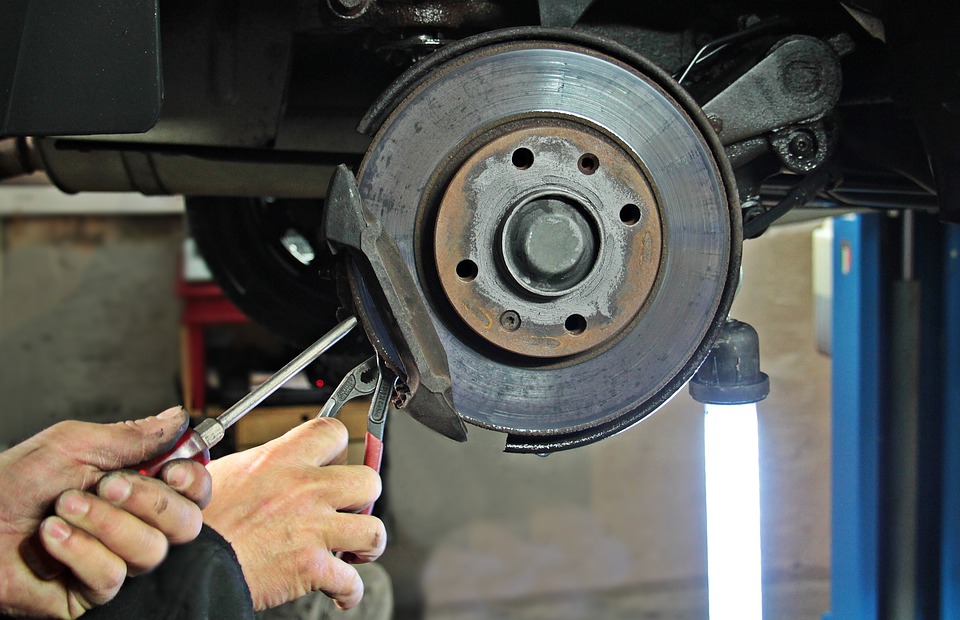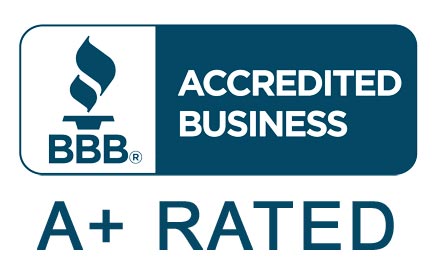Has it been feeling like your brakes are starting to slip? There’s nothing scarier. Is the brake pedal slow to respond? Have you started hearing grinding or constant squealing when you put on the brakes? Did the brake dashboard light come on? If you answered yes to any of these questions, it’s time for brake service that includes a thorough inspection.
How Do Brakes Work?
With disk brakes, fluid in the master cylinder is pushed into a caliper, where it ends up pressing against a piston. In turn, the piston pushes two brake pads against the rotor (disk) that is connected to the wheel, causing it to decelerate or stop. With drum brakes, the fluid is pushed into the wheel cylinder that forces the brake shoes out causing friction linings to press against the drum, that is attached to the wheel, triggering the wheel to stop. In both cases, the friction surfaces of the pads on a disk brake system, or the shoes on a drum brake, transform the forward movement of the automobile into heat. It is the heat that causes the friction linings (surfaces) of the shoes and pads to inevitably wear out and require replacement.
Why and When Do You Need Brake Service?
A couple of warning signs that you need brake service is if you start to hear a high-pitched squeal (could mean your pads need to be replaced), or hear a harsh grinding sound (could mean you’ve completely worn through the pads). Has your car ever felt like it suddenly has a mind of its own, pulling to the left or right when braking or driving? This could indicate that there’s a problem with the braking system, possibly a stuck caliper. If the brake pedal goes all the way to the floor before engaging, there’s a good chance your hydraulic system is having problems or the brake pads are worn. Here are some of the frequently asked questions about brake parts.
- What are brake pads? These are the steel support plates with friction material that are attached to the area that fronts the disc brake rotor. When the brakes are applied, the caliper squeezes or clamps the pads onto the spinning rotor to stop or slow down the vehicle.
- What’s a rotor? Also referred to as brake discs, rotors are the parts your brake pads clamp down on to prevent the wheels from spinning. Brake rotors stop the vehicle, making them a crucial component of the braking system.
- What’s a caliper? A caliper is a part of the disc brake system. When the brake pedal is pressed, the brake fluid flows from the brake fluid reservoir (master cylinder) to the calipers. This applies pressure on a piston located inside the caliper, pressing the brake pads against the rotors to slow and stop your car.
- What’s a brake hose? Brake hoses transport the brake fluid from the master cylinder to the brake wheel cylinders or calipers. When you apply the brakes, it is the brake fluid that causes the brake pads to push against the rotors, causing the vehicle to slow down or stop.
- What is brake fluid and why does it need to be exchanged? Brake fluid is a unique oil that has distinctive properties designed to stand up to hot temperatures without boiling and cold temperatures without thickening. If the brake fluid ends up boiling, it causes the pedal to feel “spongy,” making the vehicle hard to stop. At this point, it should be exchanged. Brake fluid is required to meet standards set by the Department of Transportation. Check your owner’s manual to find out what your vehicle’s manufacturer recommends.
From the pedals to the master cylinder, power brake booster, brake fluid, disk brakes, drum brakes and electronic anti-lock brake sensors, High Tech Car Care technicians are brake service experts. Regardless of the make or model, your vehicle will be in highly skilled hands. To learn more about our brake service click here.





